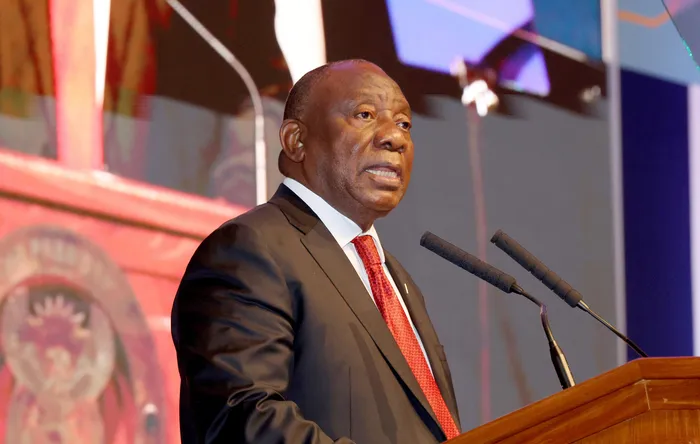
President Cyril Ramaphosa has appealed to the Constitutional Court in a bid to overturn a recent Gauteng High Court ruling that challenged the legality of his decision to sign the National Health Insurance (NHI) Bill into law.
Image: GCIS
President Cyril Ramaphosa has appealed to the Constitutional Court in a bid to overturn a recent Gauteng High Court ruling that challenged the legality of his decision to sign the National Health Insurance (NHI) Bill into law.
The controversial bill, signed by Ramaphosa in May 2024, is a cornerstone of the government’s proposed overhaul of South Africa’s healthcare system, aiming to establish universal health coverage for all citizens.
However, the High Court in Pretoria ruled shortly afterwards that Ramaphosa’s assent to the bill could be subject to judicial review — a finding that raised constitutional and procedural concerns. The court also ordered the president to provide a full record of all documentation and deliberations that informed his decision to approve the legislation.
This move sparked criticism from legal and political commentators who viewed it as a significant intrusion into executive authority. Now, Ramaphosa is asking the Constitutional Court — South Africa’s highest legal authority on constitutional matters — to review and set aside the High Court’s judgment.
In his application, the president contends that the lower court may have overstepped its bounds, arguing that it infringed on the constitutional doctrine of separation of powers. According to court papers filed by Ramaphosa, the High Court ruling “undermines the functioning of the executive” and grants the judiciary undue influence over matters that, by design, fall within the president’s discretion.
He maintains that while all actions of public office bear scrutiny, the power to sign legislation into law lies squarely with the executive and must be exercised without judicial interference unless a direct constitutional violation is evident.
The legal dispute unfolds amid intense national debate over the NHI, which has drawn sharp reactions from across the political spectrum. Supporters argue that the legislation is necessary to address systemic inequality in access to healthcare, while critics — including major stakeholders in the private healthcare industry — warn that the bill is vague, fiscally unsustainable, and potentially unconstitutional.
The High Court’s ruling added a new layer of complexity to the NHI saga, as it suggested the president’s role in enacting legislation is not immune from legal challenge if the process appears flawed. Some constitutional scholars noted that the court’s directive to produce the “record of decision” implies that judicial oversight could extend into executive reasoning, a move with far-reaching implications.
Legal experts say the outcome of Ramaphosa’s appeal could set an important precedent for the limits of presidential authority and the role of the judiciary in legislative processes. If the Constitutional Court agrees to hear the matter, its judgment will have significant consequences not only for the future of the NHI but also for the balance of power between branches of government.
